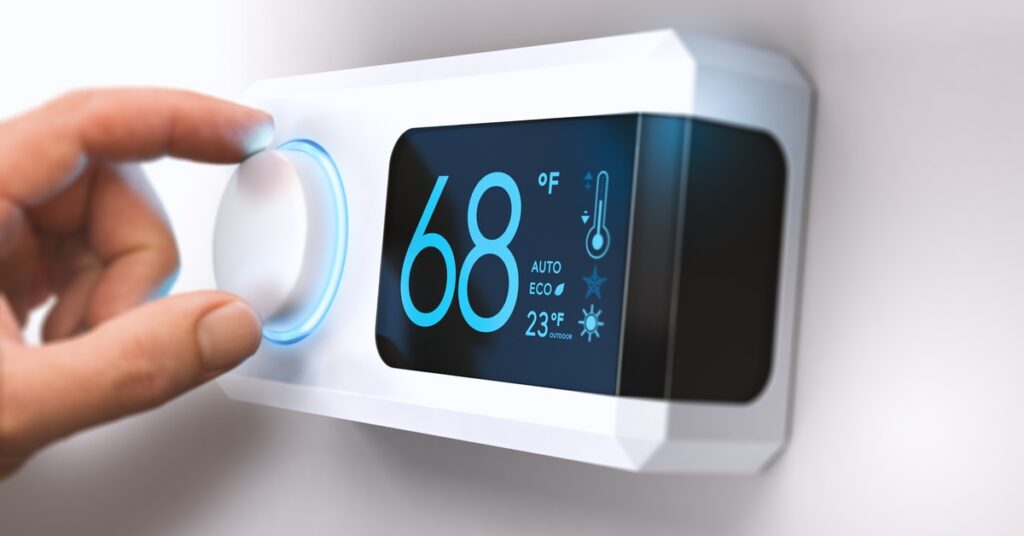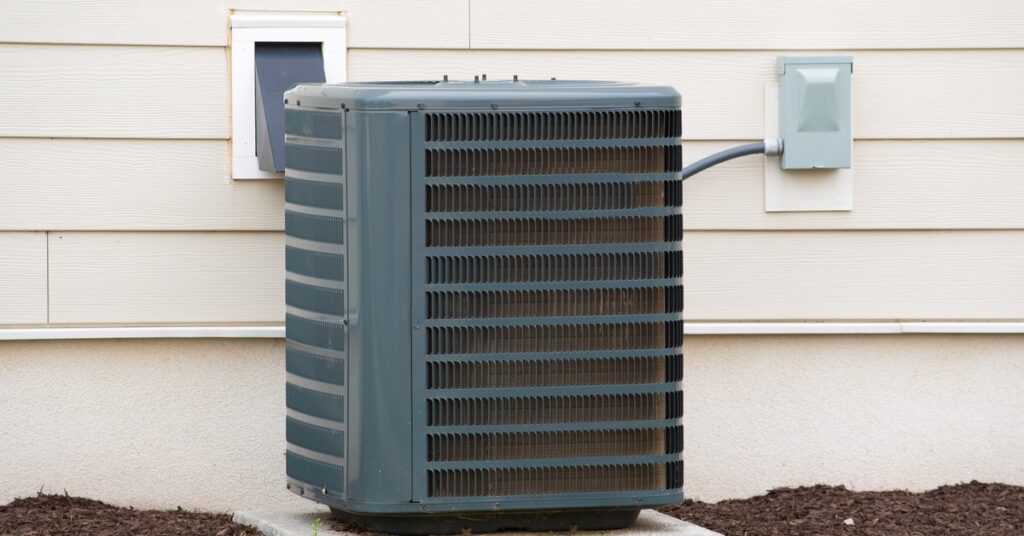On a hot day, the first thing most of us think to do is turn our AC as low as possible and then relax in the comfiest seat in the house. While this will help you escape the heat outside, it might have adverse effects on your HVAC system. If you don’t put the AC low enough, your home may feel too warm; however, if you set it too low, you could overwork the system. Find out how cold the air from the air conditioner should be so you can remain comfortable throughout the year and avoid wasting money or overworking this essential amenity.
Ideal Temperature Range
The air conditioner works by pulling warm air from inside your home, cooling it through its coils, and then circulating the cooler air back into the space. Setting the air in your home too low forces the system to work harder since it has to run longer to maintain the lower temperature. This increased strain can lead to higher energy bills, accelerated wear and tear on the system, and even frozen coils, which can reduce efficiency and necessitate costly repairs.
To avoid these concerns, you should aim to set your air conditioner to be at most 15–20°F (8–11°C) cooler than it is outside. So if it’s 90°F outside, you’ll want an inside temperature of 70–75°F.
Consider Your Comfort

Although the recommended AC range is 15–20°F cooler than the outside temperature, the true ideal setting depends on personal comfort. Some people prefer keeping the house at 72°F, no matter how hot it is outside, because it’s the most comfortable for them.
Keep in mind that a 15–20°F difference may not be significant on cooler days. For example, if it’s 70°F outside, you may simply leave the AC off and open some windows or turn on a fan.
Checking Temperatures
Purchase a digital temperature sensor to verify the accuracy of the reading on your thermostat. Generally, these devices are small and wireless, allowing you to easily move them throughout your home.
What If The Air Is Too Warm?
If you turn on your AC and feel warm air coming out of the vents, there may be an issue with the refrigerant levels, filters, or other components of your system.
What If the Air Is Too Cold?
While you want the air in your home to be cool, you don’t want it to be freezing. If the air coming out of your vent feels colder than what you have set the thermostat to, there may also be an issue with internal components. A faulty thermostat, restricted airflow, or a problem with the compressor are possible culprits.
Factors Affecting Air Temperature
Understanding what impacts the temperature of your home can help you make informed decisions about how to set your thermostat. Here are some factors that can affect air temperature.
Humidity Levels
The temperature and humidity levels of your surroundings directly affect the cooling efficiency of an air conditioner. High humidity can make a room feel warmer, as excessive moisture in the air affects the perception of thermal comfort. This usually forces the unit to work harder, so it may take longer to achieve the set temperature.
If your unit has a dehumidifier, ensure you set it to remove excess moisture from the air. Additionally, keep doors and windows closed to help prevent external humidity from affecting your indoor environment.
Size of the Air Conditioner and Your Home
The size of an air conditioner directly correlates to its ability to cool a given space. An undersized AC will overwork and run continuously to achieve the desired cooling effect. On the other hand, an oversized system may cycle on and off frequently, reducing its ability to maintain consistent temperatures and adequate humidity control.
When you buy a unit, always check the BTUs (British thermal units), which indicate the cooling capacity of the system. The capacity should align with the square footage of your home. If you’re unsure whether it aligns, consult a professional HVAC technician for help determining the ideal size for your home.
AC Care Tips
Now that you know how cold the air from the air conditioner should be and what could be affecting its performance, your next task is getting your unit to maintain that temperature. You can achieve this through the following maintenance tips.
Avoid Setting It Too Low
If it’s hot outside, the first thing most of us want to do is set the air conditioner as low as we can. However, doing this can be risky since extremely low levels can freeze evaporator coils. Frozen coils restrict your system’s ability to produce sufficiently cold air, resulting in diminished cooling capacity.
If ice buildup occurs, defrost the unit by turning off the cooling mode while running the fan to restore airflow, and then seek professional help.
Keep the Unit Clean

If debris builds up around your outside unit, it may struggle to adequately ventilate air since the airflow becomes obstructed. Likewise, your vents should remain clean and unobstructed to ensure proper air circulation throughout your home. Blocked vents can force your system to work harder, reducing efficiency and potentially leading to uneven cooling or increased wear and tear.
Pro Tip
Schedule annual maintenance with an HVAC company so a professional can evaluate your appliance once a year. They can check the coils, refrigerant levels, and electrical connections to ensure everything is in proper working order.
Change Filters as Necessary
While some argue that you have to change your filters once a month or every other month, this isn’t necessarily the case. For instance, large households or those with pets may need to change their filters more often than others due to increased dust, dander, and debris in the air. Conversely, smaller households or those without pets may find that their filters last longer.
Replacing your air filters too often can be unnecessary and lead to higher costs without providing quantifiable benefits. However, neglecting to replace them when necessary can reduce airflow, strain your system, and decrease efficiency. The key is to monitor your filters regularly and replace them based on their condition rather than adhering to a strict schedule.
Know When To Call a Professional
Persistent issues such as warm air output, significant ice buildup, or refrigerant leaks warrant professional diagnosis. HVAC technicians possess the training and tools to resolve more complex problems, including cleaning condenser coils or recharging refrigerant levels. Routine maintenance checks by professionals also identify hidden concerns before they disrupt system functionality.
Style Crest Can Help
Don’t wait until small issues turn into costly repairs. Proactive care saves you time, money, and stress, so schedule a professional service with Style Crest today! We offer maintenance plans and 24/7 AC repair services so that every homeowner can feel comfortable. Giving your AC the care it needs means fewer breakdowns, lower bills, and a home that’s comfortable no matter how hot it is outside.